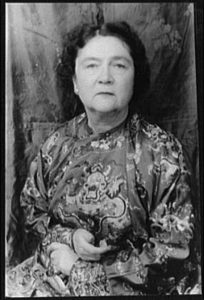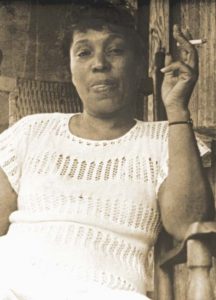

Marjorie Kinnan Rawlings Zora Neale Hurston
The trouble with listening to authentic American voices is the certainty that they won’t tell you what you want to hear.
In my last post, I wrote that music industry giants Tom Petty, who started out in North Florida and Bo Diddley, who ended up there, relied on youths spent in the rural South to give them perspective. Neither conformed to fashion or political or artistic correctness as defined by the music industry over their long careers. They took it directly to their fans.
Now it’s time for the Florida women who thought,wrote and lived differently: Marjorie Kinnan Rawlings and Zora Neale Hurston.
Both women belong to an earlier era. Rawlings (1896-1953) and Hurton (1891-1960) shared more than talent, attitude and a deep love for the Florida scrub.
The differences are obvious: White Rawlings grew up as a privileged daughter of a patent attorney and homemaker in Washington D.C. Black Hurston was the daughter of a half-white carpenter and Baptist preacher and his homemaker wife in rural Florida in the first African-American municipality (circa 1888) in Eatonville, FL.
However, the Kinnan family was always on the outside of the Washington social structure and Ida Traphagen Kinnan, Marjorie’s mother, alternately used Marjorie and her writing talent to gain attention vicariously and then would spoil Marjorie by slavishly working so that Marjorie had no other responsibilities other than school or writing. On the other hand, Zora’s father as a Baptist preacher and her mother, Lucy, as his wife and a favorite of the women congregation members were at the top of the social pecking order of Eatonville and the all-important Baptist church. Zora had free time to play and dream unsupervised unlike Marjorie who fought her mother’s constant supervision for most of her youth.
Marjorie adored her father and disliked her mother intensely. Zora fought with her father constantly and relied on her mother for protection, understanding and affection.
Both women were forced to grow up quickly due to the sudden death of their favored parent. Zora was 13 when Lucy died and Marjorie was 16 when her father, Arthur, died.
Although both women were in the minority of college-educated women at the time–Marjorie at the University of Wisconsin and Zora at Howard University and Barnard College (by a fantastic and circuitous route)–neither was able to vote until women gained that right in 1920 when Marjorie was 24 and Zora was 30.
Marjorie headed into the Florida scrub to write, and Zora would return to Florida when her career and the Harlem Renaissance that fueled it started to fade.
Marjorie wrote about the poor rural whites that took the brunt of the Depression in the south. (She rarely wrote about poor African-Americans except to outline local personalities in the Cross Creek area.) She fought with neighbors (Their hogs ate her flowers.), the local honchos (She raised wages for blacks and whites on her farm as soon as she could and the local whites couldn’t or wouldn’t match the money.), and her first husband. Charles Rawlings left in 1933 and inspired the great short story “Gal Young’Un” about gender politics between an aging Cracker woman and a young moonshiner.
Zora flourished during the Harlem Renaissance, but alienated the male elite that spearheaded the movement by refusing to write about lynchings and southern politics. She would, however, write deeply about male privilege, gender politics and female choices in a series of short stories, her autobiography and her masterpiece Their Eyes were Watching God.
Neither woman would write about the Ku Klux Klan. Marjorie lived alone in the country for many of her best writing years and was probably too shrewd to take on a fight she couldn’t win. Zora spent time traveling alone around Florida recording songs and stories in lumber camps and mills. She lived dangerously during those years, and may have preferred white indifference to her activities.
As the 1930s waned and war loomed, Zora’s career headed downhill and she met with Marjorie after Rawlings hit financial success with
The Yearling about 1942 to ask for money. Marjorie, who loved Zora’s writing, would sponsor her several times over the next decade. Marjorie would eventually espouse equality for blacks (further enraging her white neighbors), but Zora would opt against what she called “forced integration”, and, of course, alienated her own community.
Marjorie died in 1953 and Zora died in 1960. Their writing lives, of course, and so does the mystery of how and why two such talented women who were largely defined by their fighting spirit and who lived against the norms of their era, ended up in backward-but-beautiful north Florida at the same time.








Beautifully written and expressed. Also very timely
Thanks so much. I’ve been reading about Rawlings and Hurston for awhile. They died in the middle of the last century, but their issues are still current.
Love your jewelry!
Thank you.
Another well-researched and methodically composed piece of historical writing. I felt, at times, compelled to take notes! Great work and Strength for the Journey,my friend.
Thank you.